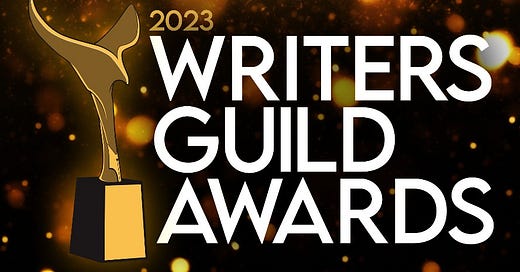New Categories to Highlight the "Writer" in "Writers Guild Awards"
Reimagining Hollywood's twelfth most glamorous night
Did you know that there’s an awards show without the pomp, vanity, and pretentiousness of other awards shows? And also without the star-power, glamor, prestige, or public interest? There is, and it’s called the Writers Guild Awards (happening tonight!)! Staged each year by the Writers Guild of America, of which I am a proud member, the WGAs honor outstanding achievement in the field of frantically cranking out a script in 48 Adderall-fueled hours to meet a deadline that you’ve been blowing off for six months.
I love the WGAs. But I don’t love the categories. The WGAs feature cookie-cutter categories that fail to delve into what it means to be a writer. Awards are handed out for humdrum categories like:
Best original screenplay
Best drama series
Best comedy series
These are the same categories that you’ll find at a dozen other awards shows. And they let actors vote for those awards, for Christ's sake. ACTORS!!!
I believe that the Writers Guild Awards should recognize triumphs and achievements that are unique to writing. Towards that end, I humbly propose six new categories that more suitably honor our noble craft.
Roughly 20 percent of the world has “smart person” as their identity. Unfortunately, only seven people on Earth are actually smart. Thus, there’s a large market for urbane-seeming content that merely flatters the prejudices of elite dullards. Top writers in this genre will infuse social commentary and Shakespearian dynamics into their dumb-as-dogshit rendering of the world as understood by someone whose main source of news is The Huffington Post. The key to this type of writing is preventing the dialogue from getting in the way of the wardrobe and set design, which are doing all the heavy lifting.





